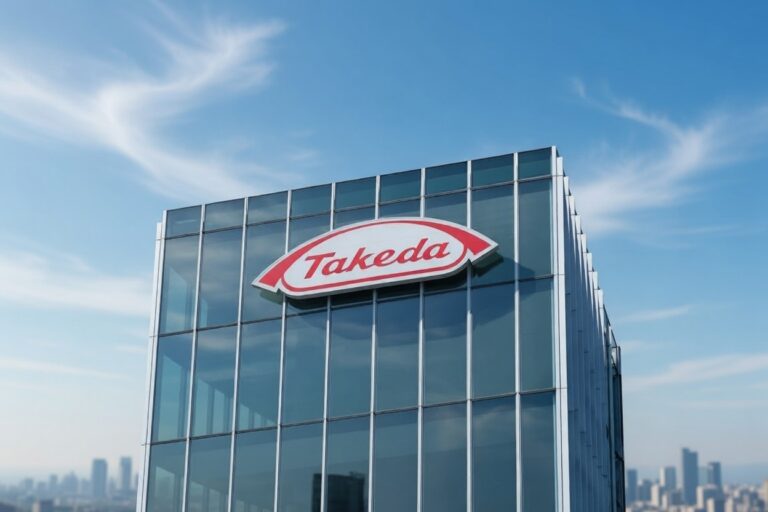
FDA Approves Merck’s KEYTRUDA® (pembrolizumab) in Combination With Padcev® (enfortumab vedotin-ejfv) for First-Line Treatment of Certain Patients With Locally Advanced or Metastatic Urothelial Cancer
Merck (NYSE: MRK), known as MSD outside of the United States and Canada, today announced the U.S. Food and Drug Administration (FDA) has approved KEYTRUDA, Merck’s anti-PD-1 therapy, in combination with Padcev (enfortumab vedotin-ejfv) for the treatment of adult patients with locally advanced or metastatic urothelial carcinoma (la/mUC) who are not eligible for cisplatin-containing chemotherapy. This indication is approved under accelerated approval based on tumor response rate and durability of response. Continued approval for this indication may be contingent upon verification and description of clinical benefit in the confirmatory trials. This marks the first time an anti-PD-1 therapy has been approved in combination with anantibody-drug conjugate in the U.S. in these patients.
The approval is based on data from the KEYNOTE-869 trial (also known as EV-103) dose escalation cohort, Cohort A and Cohort K, which was conducted in collaboration with Seagen and Astellas. The median follow-up time for the dose escalation cohort + Cohort A was 44.7 months (range, 0.7 to 52.4 months) and for Cohort K was 14.8 months (range, 0.6 to 26.2 months). In the combined efficacy analysis of the dose escalation cohort, Cohort A and Cohort K (n=121), KEYTRUDA in combination with enfortumab vedotin demonstrated an objective response rate (ORR) of 68% (95% CI: 58.7, 76.0), with complete and partial response rates of 12% and 55%, respectively. The median duration of response (DOR) for the dose escalation cohort + Cohort A was 22.1 months (range, 1.0+ to 46.3+ months) and for Cohort K was not reached (range, 1.2 to 24.1+ months).
Immune-mediated adverse reactions, which may be severe or fatal, can occur in any organ system or tissue and can affect more than one body system simultaneously. Immune-mediated adverse reactions can occur at any time during or after treatment with KEYTRUDA, including pneumonitis, colitis, hepatitis, endocrinopathies, nephritis, dermatologic reactions, solid organ transplant rejection, and complications of allogeneic hematopoietic stem cell transplantation. Important immune-mediated adverse reactions listed here may not include all possible severe and fatal immune-mediated adverse reactions. Early identification and management of immune-mediated adverse reactions are essential to ensure safe use of KEYTRUDA. Based on the severity of the adverse reaction, KEYTRUDA should be withheld or permanently discontinued and corticosteroids administered if appropriate. KEYTRUDA can also cause severe or life-threatening infusion-related reactions. Based on its mechanism of action, KEYTRUDA can cause fetal harm when administered to a pregnant woman. For more information, see “Selected Important Safety Information” below.
“This approval is a major milestone in the treatment of patients with locally advanced or metastatic urothelial carcinoma because it is the first approved combination of an immunotherapy and an antibody-drug conjugate for these patients,” said Dr. Eliav Barr, senior vice president, head of global clinical development and chief medical officer, Merck Research Laboratories. “This expands the use of KEYTRUDA-based regimens to more patients with advanced urothelial carcinoma and demonstrates the value of collaboration in creating new combination approaches for patients in need of more options.”
Results from Cohort K were presented in a late-breaking session at the 2022 European Society for Medical Oncology Congress, and earlier results from dose escalation and Cohort A were published in the Journal of Clinical Oncology. The combination therapy was granted Breakthrough Therapy designation by the FDA in February 2020. The accelerated approval designation granted today is part of the FDA’s Accelerated Approval Program, which allows earlier approval of a medicine based on a surrogate endpoint if the medicine fills an unmet medical need for a serious condition. The ongoing Phase 3 EV-302/KEYNOTE-A39 trial evaluating the clinical benefit of KEYTRUDA in combination with enfortumab vedotin in patients with previously untreated advanced urothelial cancer is intended to serve as the U.S. confirmatory trial for the accelerated approval. It will also serve as the basis for global registration.
Study design and additional data supporting the approval
The approval is based on data from KEYNOTE-869 (ClinicalTrials.gov, NCT03288545), an open-label, multi-cohort (dose escalation cohort, Cohort A, Cohort K) study in patients with la/mUC who were ineligible for cisplatin-containing chemotherapy and received no prior systemic therapy for locally advanced or metastatic disease. Patients with active central nervous system metastases, ongoing sensory or motor neuropathy Grade ≥2 or uncontrolled diabetes defined as hemoglobin A1C (HbA1c) ≥8% or HbA1c ≥7% with associated diabetes symptoms were excluded from participating in this study.
Patients in the dose escalation cohort (n=5), Cohort A (n=40), and Cohort K (n=76) received enfortumab vedotin 1.25 mg/kg as an intravenous (IV) infusion over 30 minutes on Days 1 and 8 of a 21-day cycle followed by KEYTRUDA 200 mg as an IV infusion on Day 1 of a 21-day cycle approximately 30 minutes after enfortumab vedotin. Patients were treated until disease progression or unacceptable toxicity.
A total of 121 patients received KEYTRUDA in combination with enfortumab vedotin. The median age was 71 years (range, 51 to 91); 74% were male; 85% were White, 5% were Black, 4% were Asian, and 6% were other, unknown or not reported. Ten percent of patients were Hispanic or Latino. Forty-five percent of patients had an Eastern Cooperative Oncology Group (ECOG) performance status (PS) of 1 and 15% had an ECOG performance status of 2. Forty-seven percent of patients had a documented baseline HbA1c of <5.7%. Reasons for cisplatin-ineligibility included: 60% with baseline creatinine clearance of 30-59 mL/min, 10% with ECOG PS of 2, 13% with Grade 2 or greater hearing loss and 16% with more than one cisplatin-ineligibility criteria.
At baseline, 97.5% of patients had metastatic urothelial cancer and 2.5% of patients had locally advanced urothelial cancer. Thirty-seven percent of patients had upper tract disease. Eighty-four percent of patients had visceral metastasis at baseline, including 22% with liver metastases. Thirty-nine percent of patients had transitional cell carcinoma (TCC) histology, 13% had TCC with squamous differentiation and 48% had TCC with other histologic variants.
The major efficacy outcome measures were ORR and DOR as assessed by blinded independent central review according to Response Evaluation Criteria in Solid Tumors (RECIST) v1.1.
In KEYNOTE-869, the safety of KEYTRUDA in combination with enfortumab vedotin was investigated in patients with locally advanced or metastatic urothelial carcinoma and who are not eligible for cisplatin-based chemotherapy. A total of 121 patients received KEYTRUDA 200 mg on Day 1, and enfortumab vedotin 1.25 mg/kg on Days 1 and 8 of each 21-day cycle. The median duration of exposure to KEYTRUDA was 6.9 months (range, 1 day to 29.6 months). Fatal adverse reactions occurred in 5% of patients treated with KEYTRUDA in combination with enfortumab vedotin, including sepsis (1.6%), bullous dermatitis (0.8%), myasthenia gravis (0.8%), and pneumonitis (0.8%). Serious adverse reactions occurred in 50% of patients receiving KEYTRUDA in combination with enfortumab vedotin; the serious adverse reactions in ≥2% of patients were acute kidney injury (7%), urinary tract infection (7%), urosepsis (5%), hematuria (3.3%), pneumonia (3.3%), pneumonitis (3.3%), sepsis (3.3%), anemia (2.5%), diarrhea (2.5%), hypotension (2.5%), myasthenia gravis (2.5%), myositis (2.5%), and urinary retention (2.5%). Permanent discontinuation of KEYTRUDA occurred in 32% of patients. The most common adverse reactions (≥2%) resulting in permanent discontinuation of KEYTRUDA were pneumonitis (5%), peripheral neuropathy (5%), rash (3.3%), and myasthenia gravis (2.5%). The most common adverse reactions (≥20%) occurring in patients treated with KEYTRUDA in combination with enfortumab vedotin were rash (71%), peripheral neuropathy (65%), fatigue (60%), alopecia (52%), weight loss (48%), diarrhea (45%), pruritus (40%), decreased appetite (38%), nausea (36%), dysgeusia (35%), urinary tract infection (30%), constipation (27%), peripheral edema (26%), dry eye (25%), dizziness (23%), arthralgia (23%), and dry skin (21%). Clinically relevant adverse reactions (<20%) include vomiting (19.8%), fever (18%), hypothyroidism (11%), pneumonitis (9%), myositis (3.3%), myasthenia gravis (2.5%), and infusion site extravasation (0.8%).
Source link:https://www.merck.com





